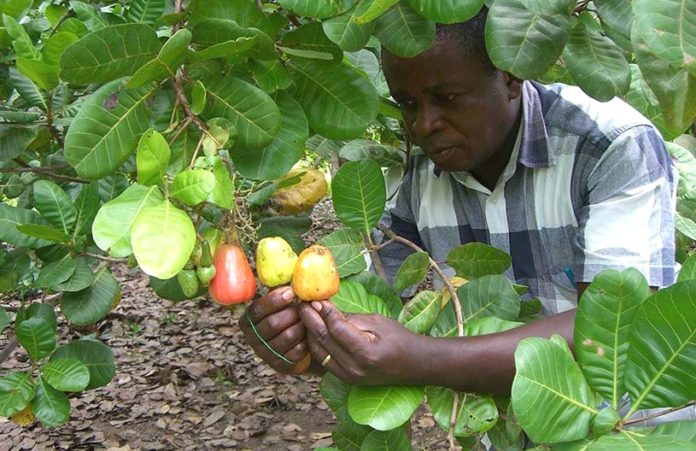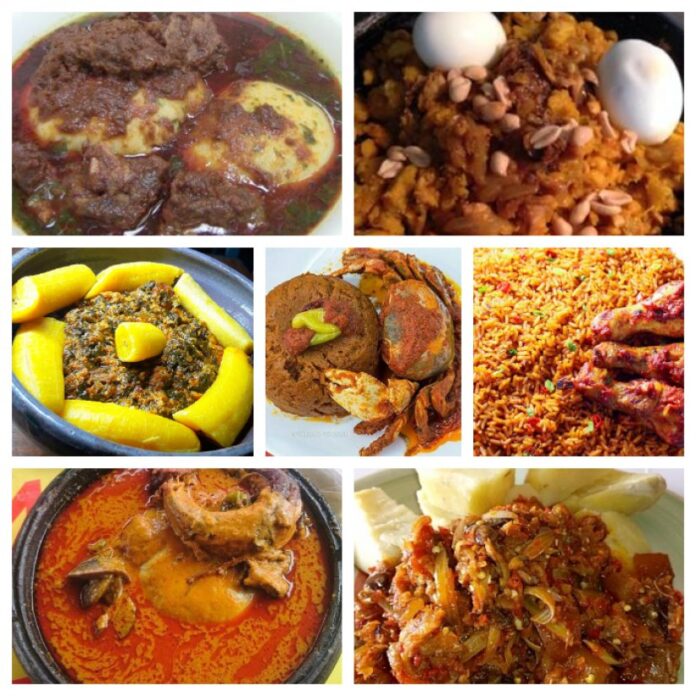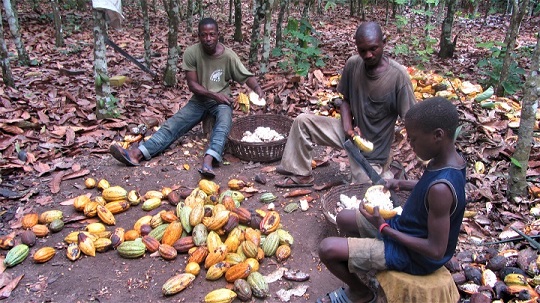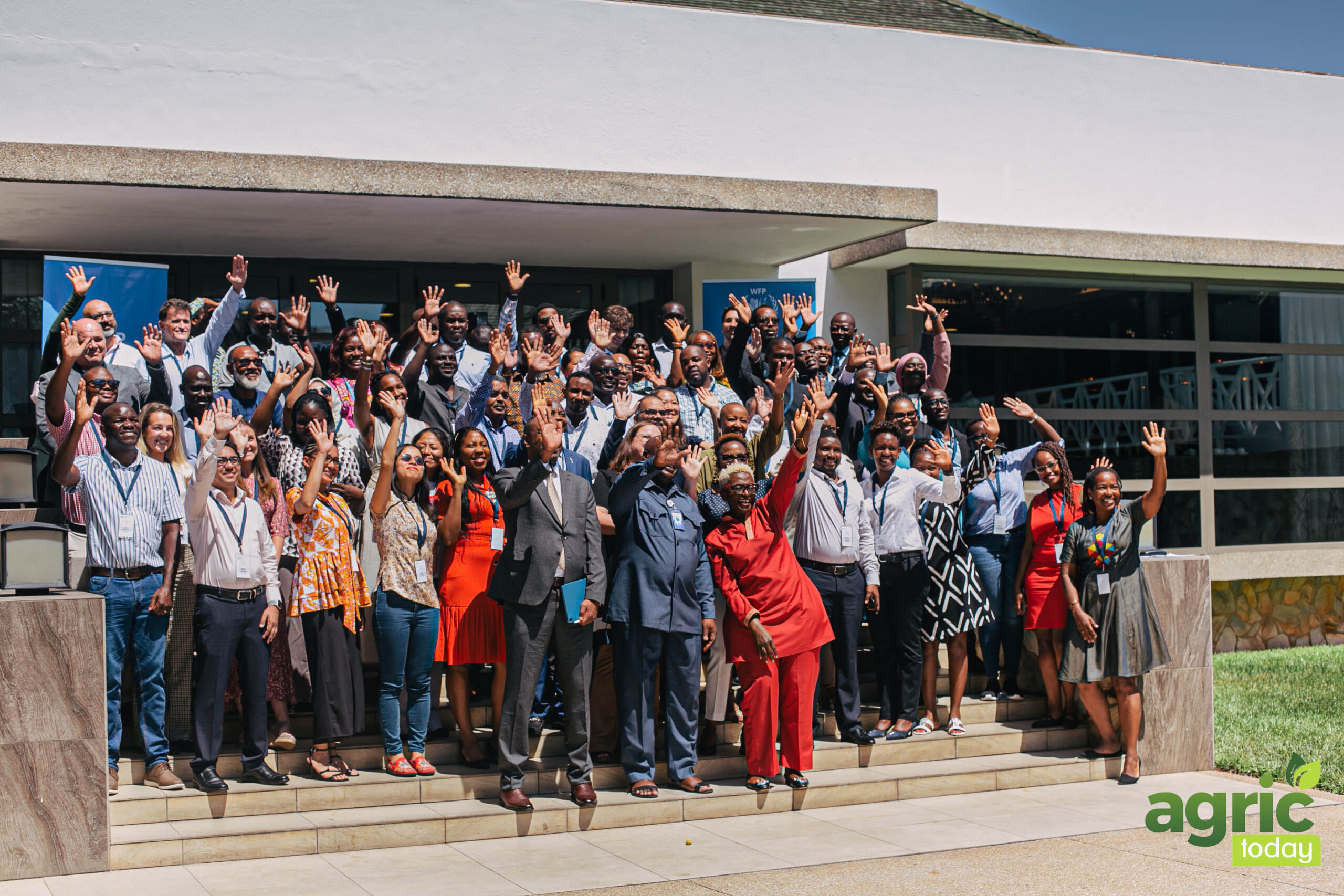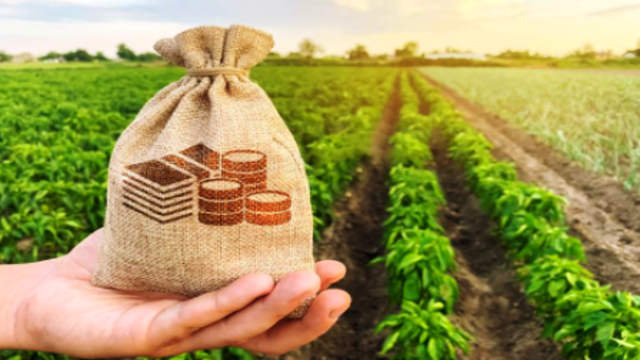A review panel of the Supreme Court has in a 5:4 majority decision affirmed its earlier judgement to declare as unconstitutional a section of the Narcotic Control Commission Act, 2020 (Act 1019) which allows license to be granted to an entity to cultivate a small quantity of cannabis, popularly referred to as “wee” in Ghana for industrial and medicinal purposes.
Ghana’s cashew industry is worth more than $660m – National Convener of Cashew Watch.
Ghana’s cashew export earnings in 2020 fetched the nation $340.7 million, with an estimated untapped potential of more than $660 million.
Raphael Ahenu, the National Convener of Cashew Watch Ghana, said the cashew sector had huge potential and prospects to transform the economy and called on the Government to prioritize the development of the industry.
He made the call at the launch of the “Amplifying the Voices of Cashew Farmers (AVFC)” project at Sampa in the Jaman North District of the Bono Region.
The AVFC is a 15-month project being implemented by Cashew Watch Ghana, with funding support from STAR Ghana Foundation.
It is to help empower cashew farmers to grow more by advocating better prices as well as removing bottlenecks in the growth and development of the sector.
There was the need for the Government to capitalise on the global prospects of the economic tree and put pragmatic measures in place to transform the cashew industry as a vehicle for socio-economic development, Mr Ahenu said.
“Ghana’s estimated annual production of between 110,000 and 130,000 tons of raw cashew nuts is not encouraging,” he said, and that more must be done for the industry to contribute significantly to economic growth, particularly in job creation and poverty reduction.
Mr. Ahenu appealed to the Government to increase technical and financial support for the Tree Crop Development Authority to effectively implement the 10-year National Cashew Development Plan.
Victor Yao-Dablu, the Jaman North District Director of Agriculture, said cashew production in the area was encouraging and urged the Government to supply farmers with processors to add value to the nuts.
He commended STAR Ghana Foundation for funding the project and expressed the hope that its implementation would help fetch the farmers a good price for their labor.
Cashew Watch Ghana is a civil society platform comprising cashew farmers, non-governmental organizations, media, and local processors.
The Global cashew market size is projected to hit a value of US$10.5 billion by 2031, the CWG said.
Currently, the global market size is hovering around US$7 billion.
Building a nutrition programme? Understanding how people behave is key.
Undernutrition contributes to up to 45% of child deaths in African countries. At the same time, child obesity rates have doubled between 2006 and 2016. More than 40% of women of reproductive age are anaemic. And 13.7% of infants have low weight at birth. Stunting in the African region is 30.7% – above the world average of 22%.
In 2020, over a fifth of Africa’s population faced hunger; 346.4 million people experience severe food insecurity; and 452 million experienced moderate food insecurity.
Nutrition programmes have been supporting families in Africa for decades. But many of these programmes have inconclusive results.
As health psychologists and behavioural scientists, we believe this is because the programmes don’t focus on fitting into families lives. Doing so would also make nutrition interventions sustainable. Understanding the behaviours of the people being targeted by nutrition programmes could improve their nutrition status.
Our recent research looked at the outcomes of studies that had behaviour change embedded within programmes to improve nutrition for mothers and children in sub-Saharan Africa. Our findings show that nutrition programmes that focus on family and community behaviour change have better health outcomes for mothers and children.
The World Health Organization has outlined the importance of behaviour change to support mother and child health and help address barriers in current nutrition programmes. Our study goes a step further to show how to use behaviour change models to design better nutrition programmes.
Behavioural science
Health psychologists and behavioural scientists developed the COM-B model. It suggests that a person’s Capability, Opportunity and Motivation can change their Behaviour. Our study showed that this model can be used to consider what is happening in the lives of people when designing nutrition interventions including what barriers there might be to eating healthy food.
“Capability” from the COM-B model refers to a person’s physical capability, such as their skill sets, and psychological capability, such as knowledge about a behaviour. If a person doesn’t know what foods to be eating to be healthy or doesn’t feel they have the skills to cook healthy foods, they can’t change the behaviour. Programmes need to support people to know what the healthy local foods are and how to cook these foods, potentially through community-led cooking demonstrations. Our findings show that simply educating people isn’t enough. Making lessons interactive and practical in people’s daily lives increases the likelihood of behaviour change.
“Opportunity” from the COM-B model refers to a person’s physical opportunities in their environment, and their social opportunities such as their family and wider community. For example, if communities don’t have apples and bananas growing in their environment, or for sale, then they simply won’t be able access these foods. Programmes therefore need to support the foods that are already available to buy in people’s environment. If possible, they should also support the wider community to grow food. The people around us influence what we do and what we eat. Programmes should try to encourage key community and family figures to support nutrition practices.
“Motivation” from the COM-B model refers to a person’s habits and things they do without realising it (automatic motivation). One of the habits or norms in many communities is to prioritise men, then children, to eat first. Women often get the leftovers, even when they are pregnant. This means that pregnant women don’t get the nutrients they need. Programmes need to work with women, men and wider communities to motivate them to prioritise women’s nutrition, while respecting culture and tradition. This would encourage reflective motivation where people can consciously make decisions about food within social structures.
Building nutrition programmes
When designing nutrition programmes, the best way to learn about people’s motivations is to ask them directly about the issues they are facing and the solutions they want. Once you know their issues and potential solutions, you can use behavioural science models such as the COM-B model to categorise the issues and solutions, and start designing programmes to address these gaps.
To go a step further, the same behavioural scientists also developed the Behaviour Change Wheel, which helps us to think of different methods.
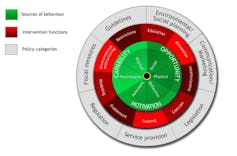
Our study shows that applying the Behaviour Change Wheel to nutrition programmes may also increase their impact. The wheel suggests:
- giving participants incentives
- using persuasive communication
- modelling healthy diets
- restructuring the environment
- educating on nutrition, in an interactive way
- supplying resources such as tools and seedlings (enablement)
- training communities in cooking or agricultural methods.
Using simple behavioural science models can help programmes to understand people’s lives and how to design nutrition interventions that directly benefit them, even when the funding ends.
Government to roll out an aggressive program to ensure Food Security – Agric Minister.
The minister of food and Agriculture, Hon. Bryan Acheampong has revealed that the government in June will roll out a strategic plan to ensure food security and availability for the next five (5) years.
Ghana Chicken Festival: A good initiative for food independence and self-reliance.
The Deputy Minister in charge of livestock, Hon. Alhaji Hardi Tufeiru, has revealed the relevance of the Agrihouse initiative “the Ghana Chicken Festival as a means of enhancing local poultry consumption, dependence on imported chicken to enhance the country’s self-reliance.
Smallholder farmers to receive climate resilience support – Hon. Hardi Tufeeiru.
The Deputy Minister for Food and Agriculture, Alhaji Mohammed Hardi Tufeeiru, has stated that government plans to support smallholder farmers in climate-resilient agriculture through various initiatives and policies.
He said the government is considering fostering partnerships with international development agencies and donor organizations to provide training and technical assistance for smallholder farmers on climate-smart agriculture practices: especially farmer-led irrigation development schemes, water management, crop diversification for high-yielding ones, and pest management.
With irrigation identified as one of the solutions to promoting climate resilience in agriculture, he revealed that out of the country’s 1.9 million hectares of irrigation potential, 224,000 hectares are under informal and small-scale irrigation systems used by about half a million smallholder farmers nationwide, hence the need for more support.
The move is aimed at improving food security, enhancing the livelihoods of smallholder farmers, and promoting sustainable agricultural practices.
The deputy minister hinted that government will also consider providing incentives and funding support to smallholder farmers for the adoption of climate-smart agriculture technologies and purchase of climate-resilient farming inputs.
Additionally, investment initiatives toward the development of rural infrastructure such as roads, silos, and warehouse storage facilities under the Planting for Food and Job (PFJ) will continue. This is to enable smallholder farmers to access markets and reduce post-harvest losses.
“The solution to climate-menace in food production, especially in Africa, is irrigation. Unfortunately, over the past years government intervention in this challenge was on a large-scale basis, but the strategy has changed to targetting smallholder farmers.
“We all know the role agriculture plays in our economy, especially for smallholder farmers. The importance of supporting smallholder farmers in climate-resilient agriculture in this era of global warming and climate change cannot be overemphasized, because by investing in resilient agriculture we are not only securing food and nutrition for our citizens but also contributing to the global efforts toward mitigating climate change,” he said.
He added that the Ministry for Agriculture has a dedicated body, the Ghana Irrigation Development Authority (GIDA), with the mandate to oversee all forms of irrigation operation, management, and maintenance initiatives in the country; in line with the Africa Union’s (AU) water management and irrigation development framework 2020.
The investment will be targetted at communities that are prone to climatic shocks such as droughts and floods, which have a significant impact on agricultural production.
Some dams which were constructed under the One Village, One Dam (1V1D) programme will undergo rehabilitation, for irrigation systems to increase the availability of water for agricultural activities in rural communities.
The government’s commitment to supporting smallholder farmers in climate-resilient agriculture is a clear indication of its determination to promote sustainable development and improve the lives of its citizens. In addition, the government will be investing in research and development to develop drought-resistant crops and improve soil fertility.
Chocolate makers make more money while cocoa farmers barely earn a living.
While world’s biggest chocolate companies see their profits soar, they fail to keep their promises to improve the wages of the farmers who grow cocoa in Ghana, one of the main producing countries in the world, NGO Oxfam has denounced in a report.
In a report published recently, Oxfam said earnings for US companies Hershey, Mars, and Mondelez in addition to Italy’s Ferrero and Swiss peers Lindt & Spruengli and Nestle had increased since the onset of the pandemic in 2020, a period when inflation had skyrocketed.
The world’s four largest public chocolate corporations, (Hershey, Lindt, Mondelēz, and Nestlé] together made nearly $15 billion in profits from their confectionary divisions alone since the pandemic broke. This amount was up by an average of 16 percent since 2020.
The giants paid out on average more than their total net profits (113 percent) to shareholders between 2020 and 2022.
At the same time, an Oxfam survey of more than 400 cocoa farmers in Ghana — the second-largest global producer of the commodity — found their net incomes had fallen by an average of 16 percent since the same period with women cocoa farmers’ income dropped by an average of 22 percent, it added.
“There’s big money in chocolate — but definitely not for farmers,” said Oxfam International’s interim executive director, Amitabh Behar worded plainly.
“Cocoa farmers work extremely hard, under grueling conditions, yet can’t always feed their families.”
The charity claimed that up to 90 percent of Ghanaian cocoa farmers do not earn a living income, “meaning they cannot afford enough food or other basics such as clothing, housing, and medical care. Adding that “many of the 800,000 farmers in the country survive on just $2 a day.”
The NGO also noted that while Ghana produces about 15% of the world’s beans, it receives only about 1.5% of the sector’s estimated $130 billion annual global earnings.
Giant Nestlé said that while it “cannot influence the farm-gate prices due to the cocoa-trade structure in Ghana” the company does “everything to help cocoa-farming families close the living income gap”.
It told AFP that it strives also to help improve incomes for farmers in Ivory Coast, the world’s biggest producer of cocoa.
Ivory Coast and Ghana, both located in West Africa, together produce about two-thirds of the world’s cocoa.
Ferrero said farmers in the countries receive a cash premium on top of the commercial price for cocoa and have been among the first companies to fully support the Living Income Differential (LID),” it said in a statement.
Food Safety and Quality: Ghana’s position to food safety systems are impressive for other countries to emulate – WFP.
The nutritional needs of Africa are rapidly evolving, and WFP is working to address these challenges by supporting the local production, processing, and distribution of a diversity of foods, including grains, cereals, pulses, fortified vegetable oils, and specialized nutritious foods such as fortified cereal blends, fortified peanut butter, instead of importing these foods from outside the African continent.
“We are extremely happy with the work that has been done in Ghana, it has been very successful and become a model for other countries as well and how we are developing local suppliers to make sure that their food safety levels are brought up so that they can also expand and become exporters and supply the local market for us”, Mrs. Virginia Siebenrok – Chief FSQA, WFP HQ, Rome underscored.
According to the Chief of FSQA, there is an unprecedented crisis level across the world now and that has put a lot of strings on food safety and providing safe food for the World Food Programme, however, the attention is to focus on the emerging risk to enhance the basics food safety systems.
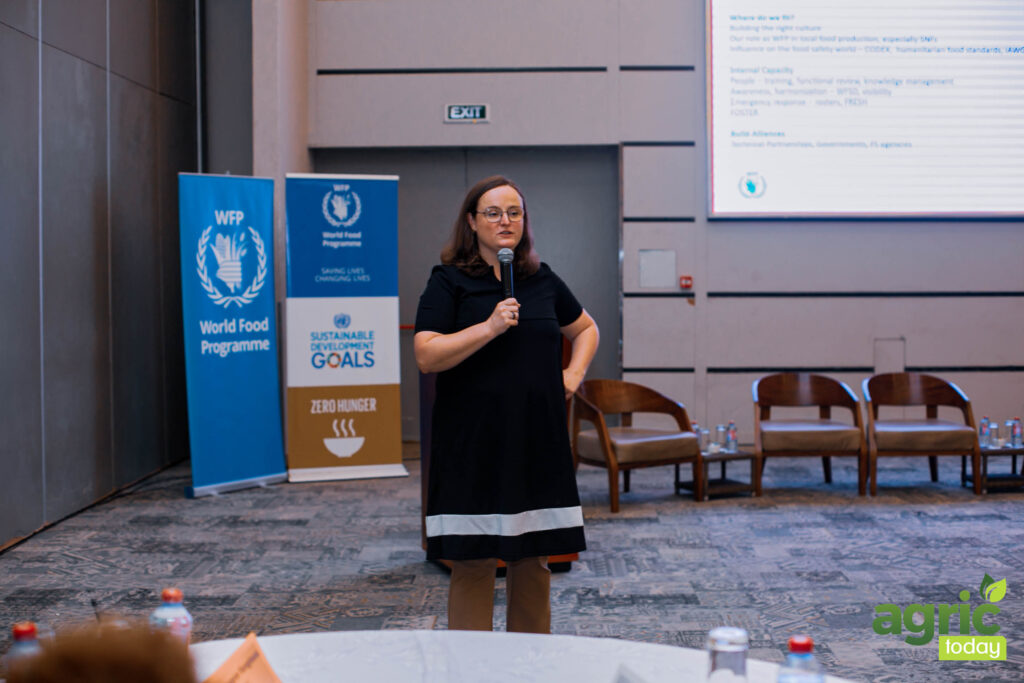
She added that this year, WFP is focusing on the African continent by seizing synergies, knowing the regional partners, and ensuring that food is safe for everyone across the content.
“I think food safety can be improved everywhere and it is constantly changing, emerging risks are different depending on the location so we need to adapt what we are seeing locally in different locations. We are much more harmonized with food safety systems worldwide and I must say that food safety systems in Ghana are very impressive and serve as a benchmark for other locations as well”, she explained.
She shared this during the World Food Programme’s African Food Safety and Quality Retreat at Accra, Ghana.
“I am happy to be hosting the retreat for the food safety and quality division of the World Food Programme, We are bringing together a group of personalities from Ghana and other African Regions of the WFP as well as the private sector to discuss food safety and quality (FSQ), specifically, in the Ghanaian context we are working hand in hand with the FDA with the intent that food security remains our utmost concern at WFP”, Ms. Barbara Clemens, WFP Ghana Country Director & Rep. told Agric Today.
In conformity to the development of Ghana’s food safety and quality, the Country Director said WFP operations in Ghana are geared towards the development of supporting the government agenda: Ghana Beyond Aid Initiative that focuses mainly on purchasing made-in-Ghana foods to distribute to vulnerable people.

“We are also looking at how WFP not just working on its own but collective with other great UN bodies to jointly identify gaps with the government and overlaps, how we are going to close those gaps and eliminate the overlaps”, she added.
She added that WFP’s engagement with AFCFTA is key and not to have bilateral relations but to engage the government.
Answering how World Food Programme (WFP) is collaborating with the private sector to achieve the initiative in regard to food safety and quality, Madam Clemens explained that the effects are huge in the sense that WFP has been working closely with the private sector to demystify the erroneous impression that things are more complicated in Africa, but on the real side of it, food safety and quality is eminent and we need to work on Africans image and redefine what people think of Africa in order to make it a more welcoming place to trade.
“We intern not to speak the language of the private sector but to engage them to criticize us on both right and wrongs doings to confirm their inclusion of the initiative”, she confirmed.
Ghana is a practical and perfect example benefitting from the WFP initiative with two industrial food processors, premium foods Ltd in Kwaso in the Ashanti Region and Yedent Agro Group of Companies in Sunyani, to set up new food processing facilities and develop global level food safety and quality management systems. One of these is currently a WFP vendor exporting lifesaving nutritious foods to the most vulnerable countries including Afghanistan, Congo, Burkina Faso, Guinea, Honduras, and Mauritania. The other is producing quality, safe and nutritious foods for the Ghanaian population.
In addition, three smaller food processing facilities which are near completion will soon be commissioned to produce nutritious cereal blends and other local creative foods to meet the nutrition needs of the communities. WFP intends to facilitate and establish multi-user agro-processing firms for various foods in their next strategic plan intended to kick off from 2024-20280. The world needs the collective efforts of the brightest technical experts to safeguard our foods and protect the lives of billions of people around the world
Contribution of the Food and Drugs Authority (FDA) to Food Safety and Quality (FSQ)
Speaking on behalf of the Chief Executive Officer of the FDA, the Deputy Chief Executive, Rodrick Daddey-Agyei said the work of the institution is not only to ensure safe food, but also to ensure micronutrient fortification in selected are compliance with national and international standards.
For instance, the Authority is currently working to revamp the Universal Salt Iodization Programme and enforce the Code of Practice for the Manufacture, Packaging, Distribution, and Sale of Iodised Salt in Ghana among the relevant actors.
To strengthen the local industry in terms of food safety and quality, the Deputy Chief Executive stated that there is a policy called Food Safety Policy that ensures that the various agencies that handle food regulation in Ghana are mandated to work together, by so doing, the areas of operation are clearly defined to prevent any squabbles.
“The Authority in collaboration with NGOs and the private sector has taken steps to bring artisans in the oil palm milling, local rice milling, and cassava processing (that is gari, cassava dough, starch, high-quality cassava flour) into compliance, and have them enrolled on to a scheme called the Progressive Licensing Scheme to ensure safety and enhance marketability”, he added.

He encouraged the local industries to take advantage of the WFP program as well as the FDA because the authority is also working with the Ghana Enterprises Agencies to provide the needed support to the individual to thrive.
FAO Approach and Strategy to Support Food Safety and Quality in Africa.
The Food and Agricultural Organization at the United Nations is key to developing food systems and their quality worldwide.
Speaking at the retreat, Dr. Blaise Ouattara at the FAO Regional Office, Accra outlined the strategic priorities for food safety. According to him, intergovernmental and inter-sectoral coordination of food safety governance is reinforced at all levels and is the number strategic priority for food safety.
He added that sound scientific advice and evidence are provided as the foundation for food safety decision-making. Moreover, national food control systems are further strengthened and are continuously improved, and lastly, public and private stakeholder collaboration is promoted to ensure food safety management and controls through agrifood systems.
For better nutrition for all, Dr. Ouattara explained that healthy diets for all, nutrition for the most vulnerable, safe food for everyone, reducing food loss and waste, and transparent markets and trade are the major safety priorities to ensure better nutrition across the continent.
The retreat fostered the expected strategic collaboration and dialogue among key stakeholders for food safety and quality on the African continent; an agreed vision for food safety and quality and share strategic direction; a continued forum for knowledge exchange and sharing ideas that will have an immediate effect on the food safety quality work across the continent; and combined and integrated food safety quality strategies around WFP country strategic plans which will produce a continental synergy in tackling the common and prevailing food safety issues.
ADB agricultural sector loans hit over 1bn – Managing Director
The Managing Director, Alhaji Alhassan Yakubu-Tali has indicated that Agricultural Development Bank’s agricultural sector loan portfolio has hit over GH¢1billion.
The amount excludes non-funded facilities such as letters of credit and guarantees granted for the purchase of agricultural inputs, machinery, equipment and raw materials.
The huge amount of investment over the past few years is part of a strategy to refocus the bank on its original mandate and provide financial intermediation for the agricultural sector.
The Managing Director disclosed this on Thursday, 11th May 2023 when he paid a courtesy call on Minister for Food and Agriculture, Bryan Acheampong (Dr.), to congratulate him on his appointment.
Due to many challenges and increased levels of risk in the agricultural sector, many financial institutions, including banks, usually shy away from investing in the sector. Alhaji Yakubu-Tali however stated that for ADB these challenges present enormous opportunities which the bank will continue to leverage.
He indicated that ADB has positioned itself as the ‘bank of choice’ when it comes to Agricultural financing, which is key in facilitating growth of the economy.
The Managing Director indicated that ADB has been a leader in providing financial support for the nation’s agric sector initiatives: including Planting for Food and Jobs (PFJ); Rearing for Food and Jobs (RFJ); Planting for Export and Rural Development (PERD); and the One District-One Factory Initiative (1D1F).
“Under Planting for Food and Jobs and 1DF1, the bank invested over GH¢251.83million to support many viable projects and purchase fertiliser and certified seeds among others. To guarantee food security, the bank between 2018 to date has disbursed more than GH¢460million to NAFCO (Buffer Stock) for purchasing stocks harvested under the PFJ programme to ensure constant food supplies under the Free SHS programme,” he said.
In the fishing sector, the bank – in partnership with the Ministry for Fisheries and Aquaculture Development and Coastal Development Authority – supported the importation of 1,300 Yamaha outboard motors as well as fishing gear for fishers at cost, either under lease-financing or through direct sales. The bank further absorbed all incidental and related costs amounting to about GH¢7million.
ADB also supported Planting for Export and Rural Development, which is a key initiative aimed at promoting perennial/tree crops. The tree-crop sub-sector was supported with a total investment of over GH¢485million for rubber, oil palm, and mango plantations.
Alhaji Alhassan Yakubu-Tali further disclosed that, as a strategy, ADB has partnered with risk-sharing incentive entities like GIRSAL to reduce the bank’s risk burden as it seeks to further grow its investment in the agricultural sector.
He stated that the bank has since 1987 been the lead sponsor of the National Best Farmer Awards, and the sponsorship forms part of its commitment to the Agricultural sector. “The bank’s association and continuous sponsorship of these events over the years is undeniable evidence of its promise to support farmers & fishers and remain focused on its founding mandate to provide financial intermediation for the agricultural sector,” he said.
He assured that the bank will continue partnering government in the quest to ensure food security in Ghana and to achieve all objectives of the Ministry of Food and Agriculture when it comes to agriculture financing and development.
An 8-year-old boy dies after drinking alleged poisoned palm wine.
An 8-year-old Boy has met his untimely death after drinking alleged poisoned palm wine at Bantama in the Awutu Senya West District of the Central Region.
Yaw Boagyan indicates that the palm wine Tapper called Kwadee, allegedly put some poisonous substance into his palm wine after noticing that some people have been consistently stealing his palm wine day in and day out.
In an interview with Kasapa News Yaw Boagyan, Auntie of the deceased, Mercy Acquah said she saw the boy screaming for help so she quickly rushed him to Awutu Bontrase Health Center and upon checks they found out that the boy has taken in poisonous substance.
She said medical officers at the facility referred the boy to Winneba Trauma and Specialist Hospital but he unfortunately died on the way.
Mercy Acquah said after examination of the body it was established that the palm wine has been poisoned.
Awutu Bereku Police proceeded to the scene to take a sample of the Palm wine to the Hospital and it was confirmed that all the palm wine on the farm had been poisoned.
Three other minors who accompanied the deceased to the farm said they threw their palm away when they saw somebody coming to the farm but the deceased drunk his, which led to his death.
The body of the deceased has been deposited at the Winneba Specialist and Trauma Hospital Mortuary.


